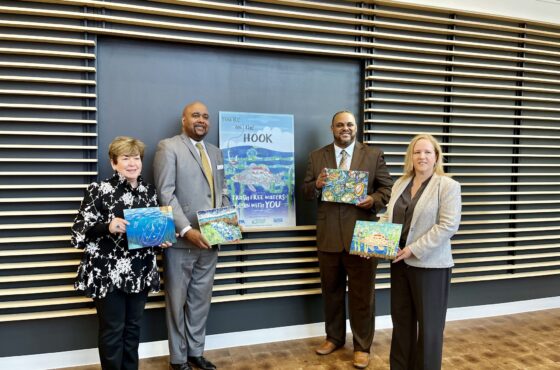The National Ocean Policy at Seven
Published by the Natural Resources Defense Fund
Today the National Ocean Policy turns 7 and I’m increasingly amazed our country ever managed without it.
The National Ocean Policy, also known by its wonkier name of Executive Order 13547, promotes coordination among the dozens of government agencies that oversee marine health and development. The idea of coordinated ocean management is not new – it’s based on decades of research and the recommendations of two separate, bipartisan ocean commissions.
But in an age of intense partisanship and divisions between agencies, and with ocean use growing rapidly, the policy’s common-sense coordination is needed now more than ever. The policy is the glue that compels agencies to work together at the front end to identify and resolve conflicts early on.
And oceans are big business. Our oceans and Great Lakes contribute hundreds of billions of dollars in goods and services to the country’s gross domestic product and employ millions of people. Many of these jobs rely on clean coastal waters and healthy and abundant fish and wildlife. We have a lot to lose from inefficient decision-making and poor decisions.
Since its creation, the National Ocean Policy has improved ocean management. One of the most inspiring actions to come from the policy has been the creation of two science and stakeholder-based regional ocean plans. These plans, crafted over several years by states from Maine to Virginia, regional fisheries managers, tribes, and federal agencies – and with extensive industry and public involvement – set out best practices for state and federal agency collaboration on key issues, including offshore wind projects that will power our cities, sand mining to rebuild our beaches, and aquaculture. By using the best available data and calling for early stakeholder engagement, these plans for good governance will allow managers and industry leaders to make better informed and quicker development decisions.
These regional plans will help keep our ocean working. But you don’t have to take my word on it:
- “The point … is to have every entity at the table working together for a healthy ocean ecosystem and sustainable ocean uses. Working in a vacuum isn’t going to get it done for the pressing challenges of the 21st century.” – John T. Kennedy, Mid-Atlantic Gateway Director, U.S. Department of Transportation
- “Ocean planning is a way to protect the areas that you fish … it’s a way of continuing the tradition that is fishing. We are getting to a boiling point where all these different ocean uses are coming to a head and we will have real access issues … This is a public resource we are talking about, and all stakeholders, all interests need to have input into that process. We need to be heard, we need to engage, and ocean planning is providing us that opportunity.” – John McMurray, Owner/Operator, OneMoreCast
- “Ocean planning is critical in order for the Coast Guard and other agencies to work together in a collaborative manner to ensure the maritime transportation system is safe, secure, efficient, and resilient.” – Chris P. Scraba, Waterways Management Deputy Chief, U.S. Department of Homeland Security, U.S. Coast Guard
- “Historically we’ve dealt with projects on a project by project basis, but with the increasing interest and demand for offshore sand resources it becomes imperative that we look at those resources on a regional scale and in a regional context because these resources are finite.” – Jeff Reidenauer, Marine Minerals Branch Chief, Bureau of Ocean Energy Management, U.S. Department of the Interior
All of these quotes and more come from a new and inspiring film about this work: Ocean Frontiers III: Leaders in Ocean Stewardship & the New Blue Economy. In honor of today’s milestone seven years, I encourage you to take a deeper look at all of the good the National Ocean Policy has brought our nation. The National Ocean Policy may be having the birthday, but we’re the ones enjoying the gifts.
Read the full article at: https://www.nrdc.org/experts/alison-chase/national-ocean-policy-seven




